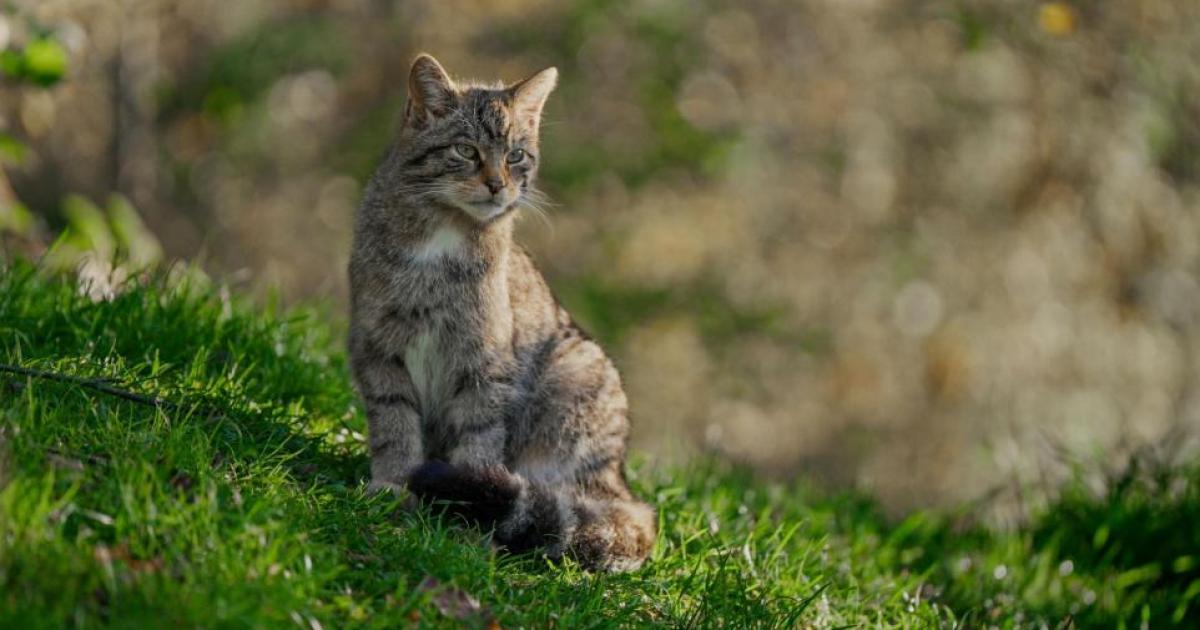The big news comes after a two-year study found there was enough habitat and widespread local support for their reintroduction.
Conservationists said the South West contains sufficient woodland connected by other suitable habitat to support a thriving population of wildcats.
Areas across mid-Devon in particular were highlighted as potentially the best spots for reintroductions.
Independent research found that about 70%-80% of people in the region were positive towards the reintroduction of the UK’s most threatened mammals to an area where they once roamed.
But wildlife experts said “a lot of work remains to be done” before the first wildcats could be released, with a focus on talking to local people to make sure the animals and communities could thrive alongside each other in the future.
What a privilege to see Hamza Yassin help to release 3 wild cats back into the wild in the Scottish Highlands last night on Countryfile BBC 1. Such a wonderful piece of filming and he is so empathic with the situation.
— Dianne GibbonsMBE (@GibbonsDia15646) November 17, 2025
A reintroduction would likely see at least 50 wildcats released over a period of time.
A South West Wildcat Project, led by Devon Wildlife Trust with partners including Forestry England and the Derek Gow Consultancy, was established in 2023 to examine if they could be brought back to the region.
It was prompted by research by the Vincent Wildlife Trust into restoring wildcats beyond their Scottish home to boost precarious populations, which found the South West was likely the most feasible area in England for a reintroduction.
A study into the feasibility of their return to the region highlights it has enough woodland connected by other habitats with sufficient prey, such as hedgerows, rough grasslands or even arable land, with a well-connected landscape across mid-Devon as potentially the best area for reintroductions.
The region also has a low density of towns and major roads, which are a key issue for wildcats on the continent.
It also shows that separate surveys conducted by the University of Exeter found significant support for wildcat reintroduction.
One survey of 1,000 people representative of the population of the South West found 71% of those questioned like the idea of wildcats returning and in the other more than four fifths (83%) of 1,425 people who responded to an online questionnaire expressed support towards their reintroduction.
“They are part of our natural heritage”
The report also found wildcat diets concentrate on widespread, commonly-found species, with 75% of their prey consisting of small mammals, including voles, rats, wood mice and rabbits.
They support healthy ecosystems by controlling the population of other species which can do damage to habitat in too large a number or which are non-native such as grey squirrels, and ensure a diversity of woodland wildlife.
Livestock such as lambs are not at risk while commercial and domestic poultry can be protected with the same measures used to stop existing predators such as foxes.
There is a risk of interbreeding with domestic or feral cats, as in Scotland where it is threatening the genetic security of the species, the study found.
Recommended reading:
‘Real hope’ for future of wildcats after another 18 released in Highlands
Police searching for answers after 2 big cats captured in UK
Critically endangered wildcats being released in the UK
Cath Jeffs, of the Devon Wildlife Trust, who leads on the South West Wildcat Project, said: “It’s exciting that this report suggests wildcats could be part of the region’s nature once again.
“The return of this critically-endangered species would be another step in the restoration of our native wildlife and will help rebalance local ecosystems.
“They’re critically endangered, why should we not bring them back, they were here and the reason they’re not here is because of persecution.
“They are part of our natural heritage.
“A lot of work remains to be done before the first wildcats could be released in the South West.”
Conversations with stakeholders such as farmers and the shooting community would be key, she added.
There are no immediate plans to release wildcats but Devon Wildlife Trust said and its partners are committed to developing plans for a reintroduction including securing funding for the scheme, the charity said.

